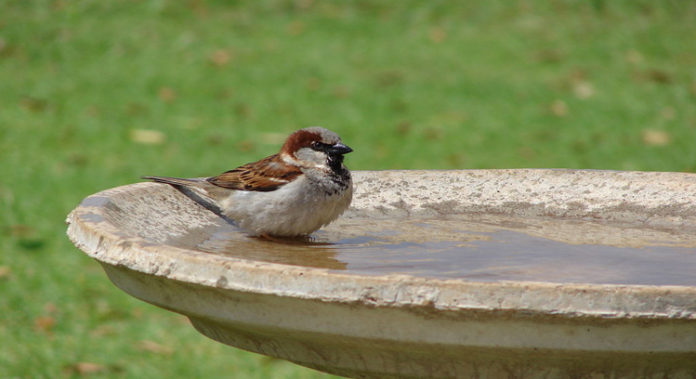
WITH SUMMER coming into full bloom, it’s time to turn our attention to our outdoor spaces at home and make the most of them for the warmer months to come.
Not only should we focus on using these spaces for ourselves, but also aim to make them a more welcoming environment for nature too.
No matter what size garden you have to work with, take a look at some of our top tips to guide you through the dos and don’ts of how to turn your garden into a wildlife haven.
Attracting birds into your garden starts with showcasing that there is food available for them, so begin by putting up a couple of bird feeders around the garden. Think carefully about the best places to locate feeders: they need to be close enough to a natural shelter, such as thick shrubs, so the birds can quickly hide if needed, but not so close that predators such as cats can pounce.
Make sure the feeder is in plain sight for birds flying overhead, but in a spot that is fairly sheltered from wind or rain to stop the food from getting soggy or being blown out of the feeder.
Depending on the species of birds in your local area and the ones you’re trying to attract, different foods are recommended. To give a well-rounded source of nutrients that will appeal to most birds, try buying a pre-mixed bag of bird food which includes sunflowers seeds, smaller seeds and peanuts.
Fruits, such as apples and pears, are another popular food source for most garden birds and are a great way to avoid wasting bruised fruit in the kitchen.
Watching birds have a bath can be an enjoyable experience so, if you have space for one, make a bird bath a new feature in your garden. Make sure it’s in a safe place — away from fences where cats can lurk — and remember to top up the water regularly so it doesn’t go stale and attract pests.
Avoid washing the bird bath with any chemicals that may be harmful to the birds; using a pressure hose on a light setting or using a scrubbing brush once in a while should remove any debris from the bottom of the bath without the need for any stronger cleaning agents.
It’s not just our feathered friends that will appreciate being invited into your gardens. Encouraging good insects too is key to attracting other wildlife, as it will help build up the biodiversity over time. Species including beetles, ladybirds, bees and butterflies are all beneficial to our outdoor spaces, as they act as pollinators and predators against less beneficial bugs.
A bug hotel is a good way to attract insects and encourage them to stay in your garden for the season. Many stores sell pre-made bug hotels that you can simply hang up or leave in a sheltered spot in the garden.
Alternatively, why not try making your own using old wooden pallets as the frame and filling it with straw, moss, dry leaves, bark or pinecones. Make sure the structure is fairly water-tight to avoid the residents being washed away in heavy rains and position it near to flowers and shrubbery that will attract pollinating insects (lavender, alliums and salvia are pollen-rich and so are ideal for attracting bees).








